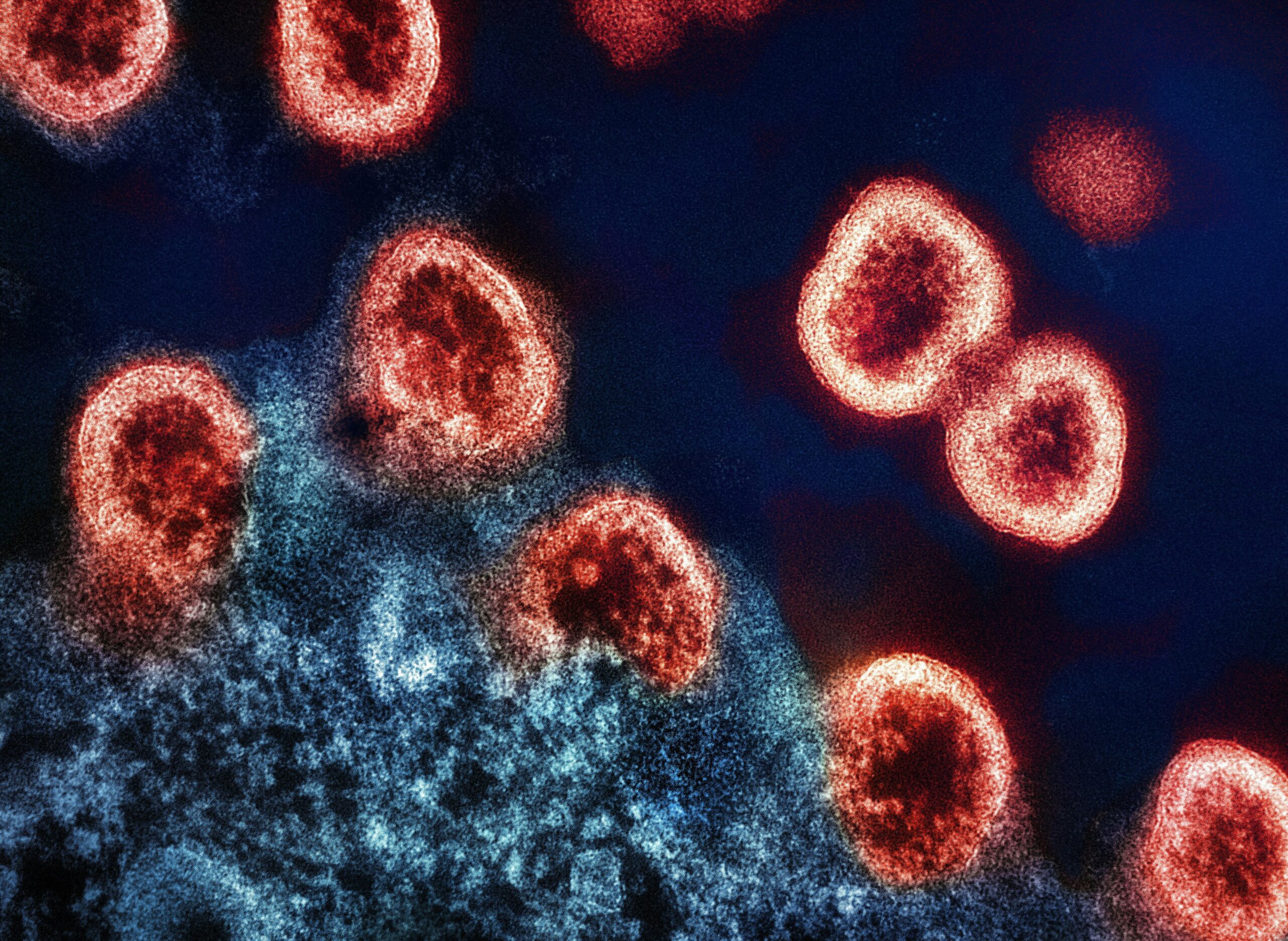What Causes Epstein-Barr Reactivation and How to Prevent It
Epstein-Barr reactivation occurs when the dormant virus becomes active again due to immune system stress or imbalance. The virus, which remains latent in B cells after the initial infection, can reactivate when the body becomes vulnerable. Reactivation is not a new infection but the return of viral activity.
What Does It Mean When Epstein-Barr Reactivates?
Reactivation is exactly what it sounds like: after a period of dormancy, the Epstein-Barr virus becomes active once again. Reactivation is surprisingly common, particularly if you have a weakened immune system.
The Epstein-Barr virus follows a three-phase lifecycle: initial infection, latency, and possible reactivation. After primary infection (commonly known as mononucleosis) EBV lies dormant within the body. Reactivation can occur when immune suppression allows the virus to multiply. This often leads to vague or chronic symptoms like fatigue, brain fog, and joint pain.
The key to EBV reactivation seems to be immune system strength. Many factors can affect your immune system and its ability to deal with threats like latent EBV.
What Are the Most Common Triggers of EBV Reactivation?
The most common EBV reactivation triggers include psychological stress, poor sleep, nutritional deficiencies, poor gut health, and chronic inflammation. Here’s a closer look at how each of those factors can trigger EBV reactivation:
- Psychological stress increases cortisol and suppresses immune resilience. The more stress you’re experiencing, the weaker your immune system, and the more likely you are to experience an EBV reactivation.
- Sleep disruption or conditions like sleep apnea reduce immune regulation. And it’s not just health issues like sleep apnea. Consuming alcohol, caffeine, or sugar can also affect sleep, as can things like street noise.
- Nutritional deficiencies like low zinc, selenium, or B12 weaken your immune system’s response to viruses, making it more likely for EBV to reactivate.
- Gut dysfunction including intestinal permeability (leaky gut) reduces immune defenses via the gut-associated lymphoid tissue (GALT). It’s important to understand the complex, central role that your gut microbiome plays in overall health and immune system function.
- Chronic inflammation (from stress, poor diet, poor sleep habits, and other causes) elevates cytokine levels, contributing to viral reactivation.
Stress lowers immunity, and gut issues increase your overall vulnerability to EBV.
Are There Overlooked Triggers Most Doctors Miss?
Yes, doctors can overlook some factors that may trigger EBV reactivation, including exposure to mold, co-infections, EMF exposure, and hormonal imbalances.
- Mold illness introduces mycotoxins that suppress T-cell activity and impair immune surveillance. Often, mold exposure happens in the home, often due to improperly maintained heating and air ducts, poorly cleaned HVAC filters, moisture in crawl spaces and basements, and more. According to a 2021 NIH review, mycotoxins can significantly disrupt cytokine signaling and immune regulation, contributing to EBV reactivation.
- Fighting chronic co-infections like Lyme disease, parasites, and HHV-6 can stretch your immune system’s resources thin, making it hard to also fight EBV. Even something like chronic allergies could be enough to stress your immune system to the point that it doesn’t have the resources to fight EBV reactivation.
- Electromagnetic frequency (EMF) exposure has been shown to stress mitochondria and disrupt cellular communication. EMF exposure can come from some surprising sources, like your cell phone, power lines near your home or work, and even from everyday appliances, like your TV or microwave oven.
- Hormonal imbalances like thyroid dysfunction or perimenopausal changes affect the HPA axis and weaken viral resistance. Hormone levels vary naturally over your life, but it can be difficult to spot hormonal changes, even when they’re significant.
Most of us never notice most of these factors. EMF exposure from being on our phone, computer and/or watching television, symptoms of mold exposure chalked up as basic allergies and even mild hormonal imbalances might never be noticed, making it challenging to remove them to prevent EBV reactivation.

Can Epstein-Barr Reactivate Without Symptoms?
Yes, EBV can reactivate subclinically, leading to silent immune stress without obvious symptoms. In other cases, your symptoms might seem like they’re related to something else. Common ones include fatigue, brain fog, and autoimmune flares. This hidden reactivation may manifest later as chronic fatigue, autoimmune flares, or persistent inflammation.
Reactivation contributes to a hidden immune burden; symptoms may not appear immediately but still tax the body.
How Is Reactivation Confirmed in Functional/Naturopathic Medicine?
Naturopathic practitioners use a combination of lab testing and clinical evaluation to confirm reactivation:
- EBV-specific antibody panels: VCA IgG, IgM, EBNA, and early antigen (EA)
- Functional immune labs: cytokines, white blood cell counts, and inflammatory markers
- Symptom review: fatigue, swollen lymph nodes, sore throat, neurological issues and more.
Labs identify immune imbalance while testing supports clinical diagnosis of reactivation.
What Can You Do to Prevent EBV Reactivation?
Taking adaptogenic herbs, paying attention to gut health, detoxing the body, focusing on nutrition, and balancing your hormones all support immune strength and reduce reactivation risk.
- Adaptogens like ashwagandha and rhodiola modulate stress and support the HPA axis.
- Gut healing through probiotics, prebiotics, and herbal support (e.g., marshmallow root) improves intestinal barrier function.
- Detox support using binders like chlorella, bitter herbs, and liver-supportive herbs helps clear toxins from the body.
- Micronutrient supplementation makes sure you have good zinc, selenium, vitamin C, and vitamin D levels.
- Hormone balancing through adrenal and thyroid testing and appropriate interventions restores immune resilience.
Holistic care protects against reactivation and lifestyle changes strengthen immune defense. There is no one-size-fits-all approach though, so it’s important to identify your underlying triggers accurately and then follow a treatment plan that fits.
Does Emotional Health Affect EBV Reactivation?
Yes, emotional trauma and dysregulation have a direct effect on how well your immune system works. According to a 2022 study published in Frontiers in Psychology, unresolved trauma alters cytokine profiles and weakens immune control over latent viruses. Other studies have linked adverse childhood events (ACEs) with higher rates of chronic illness and immune dysfunction.
- Trauma disrupts vagal tone and weakens parasympathetic regulation.
- Unresolved emotion elevates stress hormones and impacts the HPA axis.
- Chronic emotional stress leads to immune suppression and potential viral reactivation.
Some common examples of adverse childhood events include the following:
- Physical, emotional, or sexual abuse
- Physical or emotional neglect
- Exposure to a family member struggling with drug or alcohol abuse
- Experiencing poverty and other financial hardships
- Living with a family member struggling with mental health challenges
- Exposure to discrimination
Final Thoughts: A Proactive Plan to Keep EBV Dormant
A root-cause model focused on immune terrain, not just the virus, offers the best prevention against EBV reactivation. Stress reduction, detoxification, hormone balance, and gut healing are important for removing triggers that can cause EBV reactivation.
It’s also important that you don’t overlook basic lifestyle changes that can help reduce the chance of EBV reactivation, like getting good quality sleep, following a healthful diet, and finding ways to reduce stress in your life.
Functional testing combined with individualized naturopathic support can keep EBV dormant. A proactive strategy prevents flare-ups and supports long-term recovery.
If you’re managing chronic fatigue or suspect EBV reactivation, consult a qualified naturopath or functional medicine provider. If you’re anywhere in the country, including NYC, you can contact us for virtual consultations. We can provide access to specialized testing and comprehensive care from Naturopathic Doctors who understand the complexity of viral reactivation and immune resilience.









